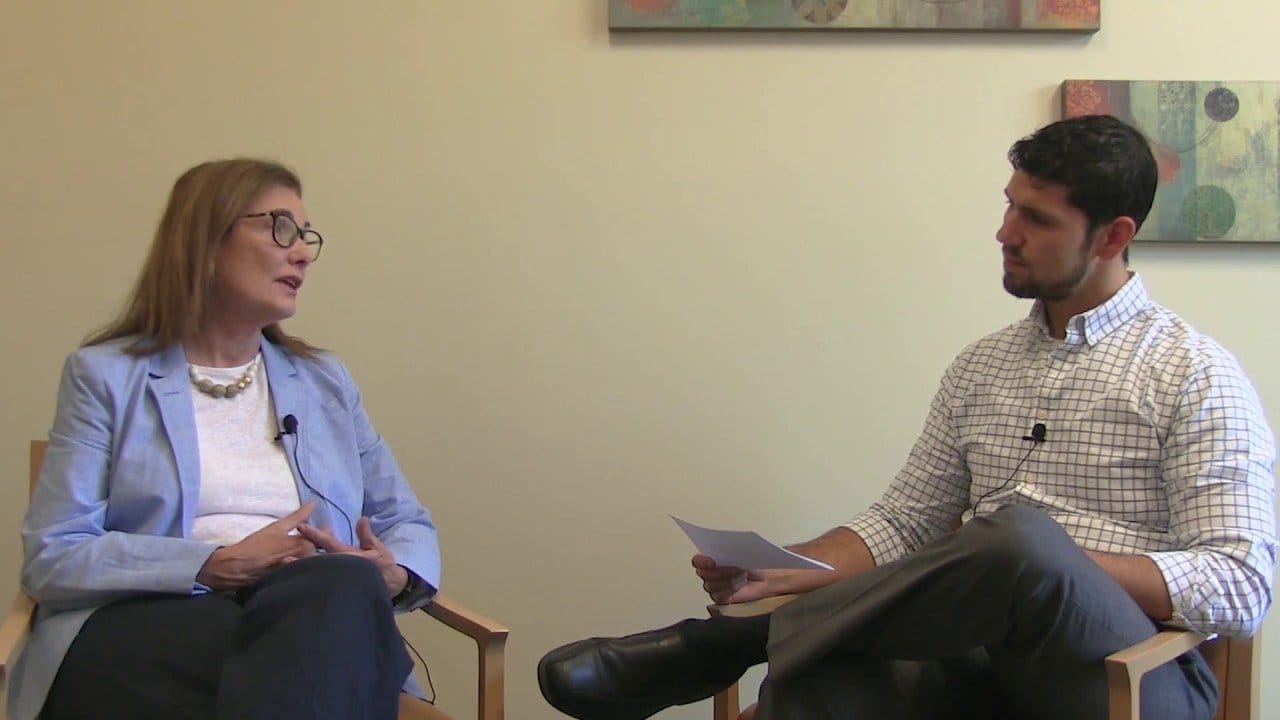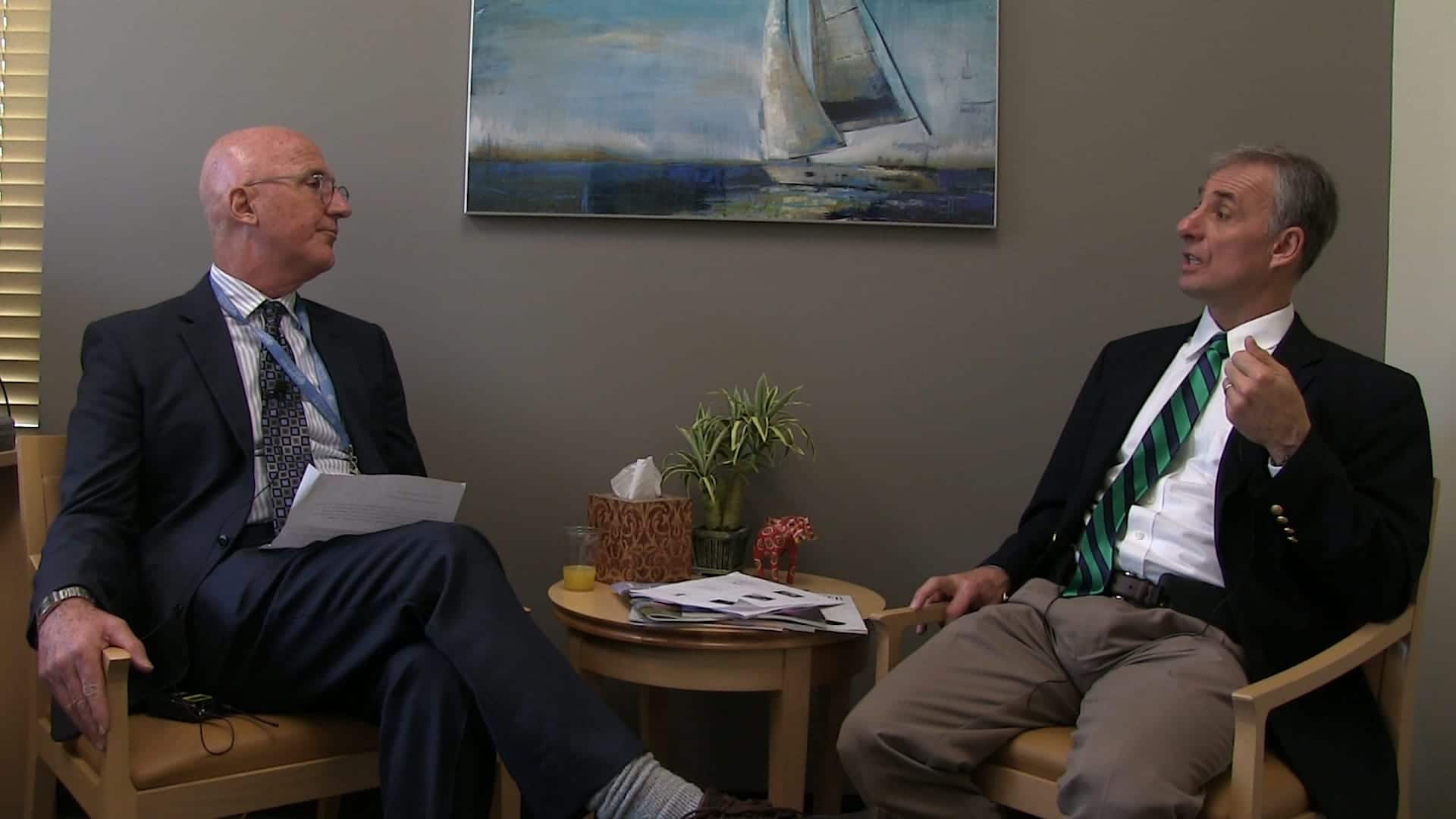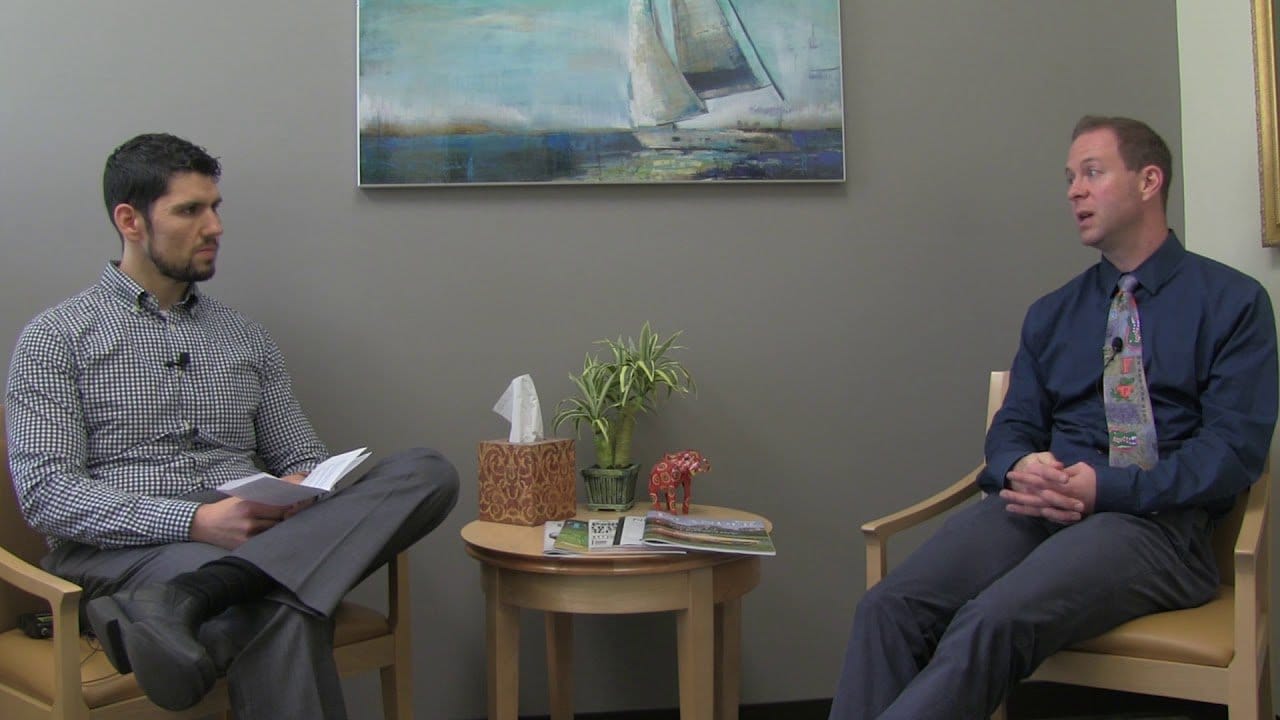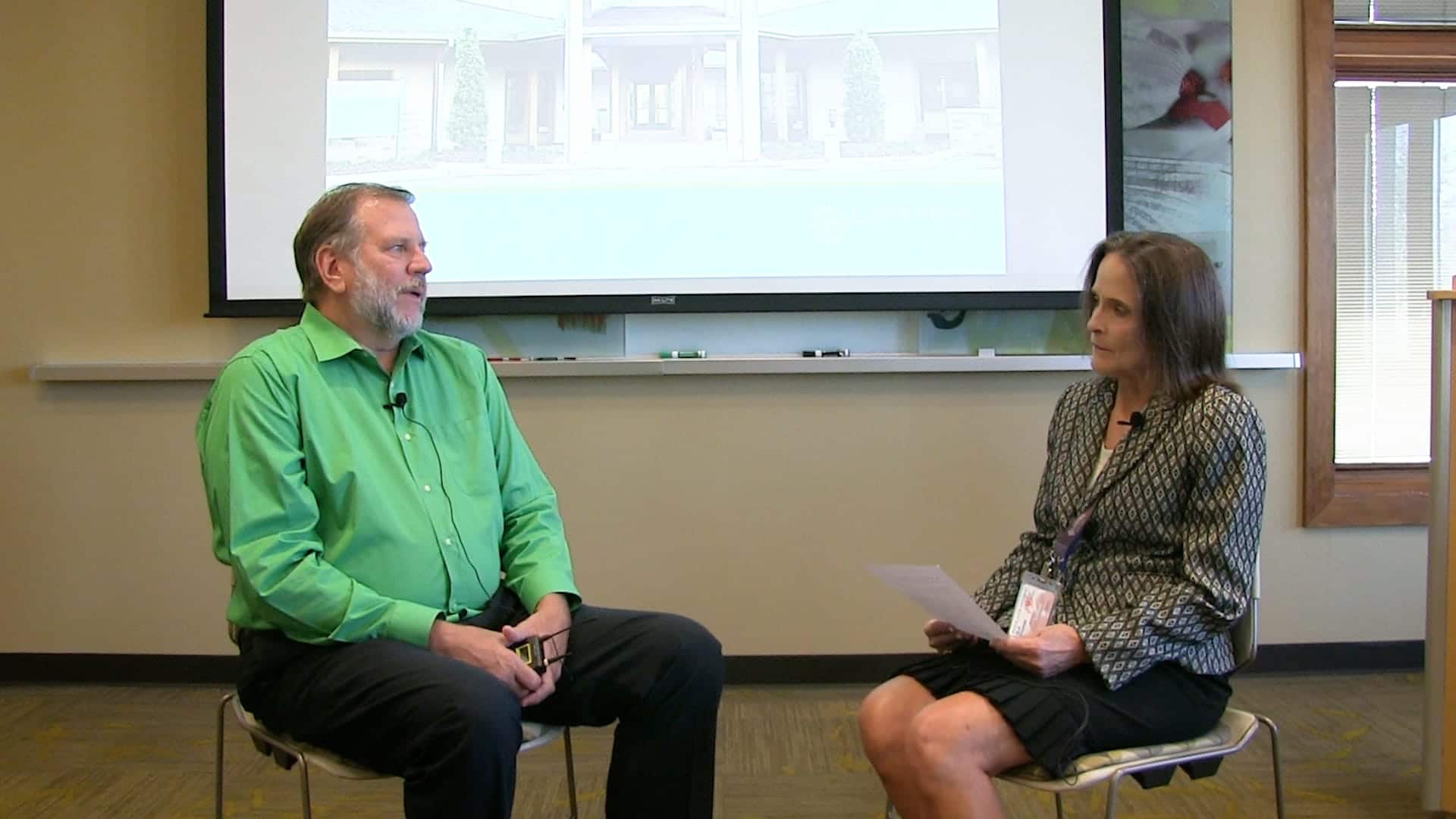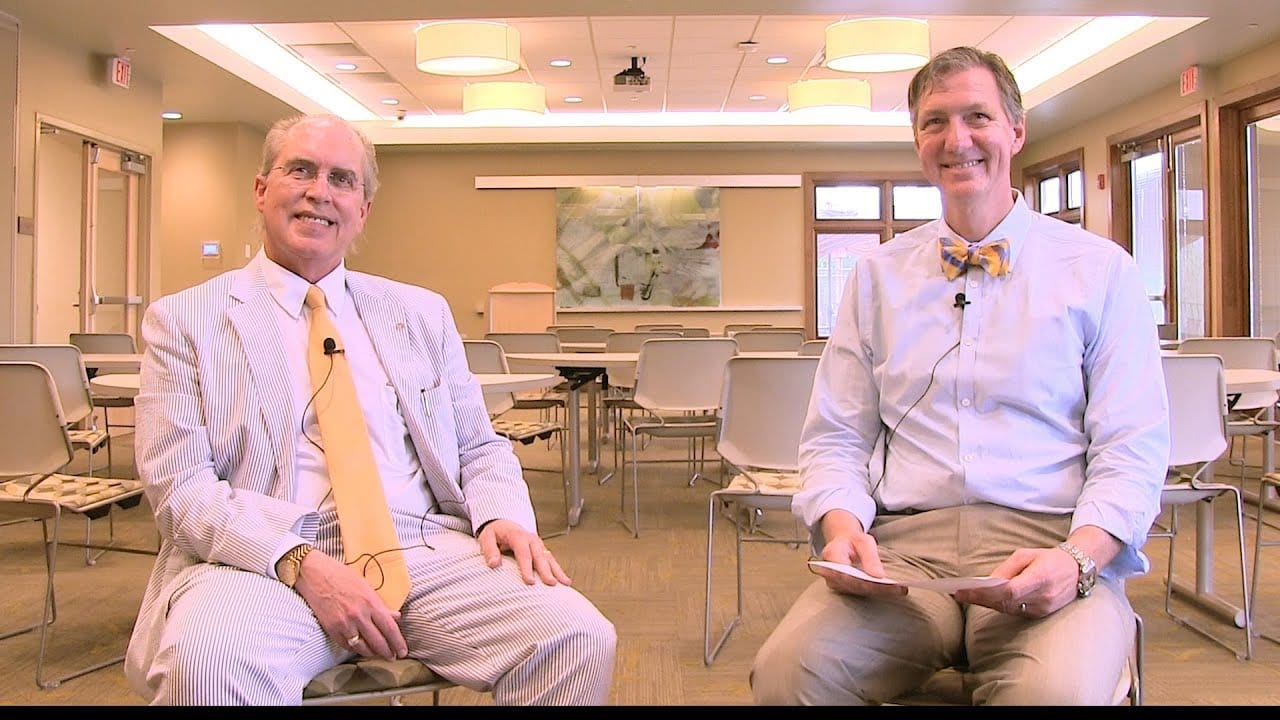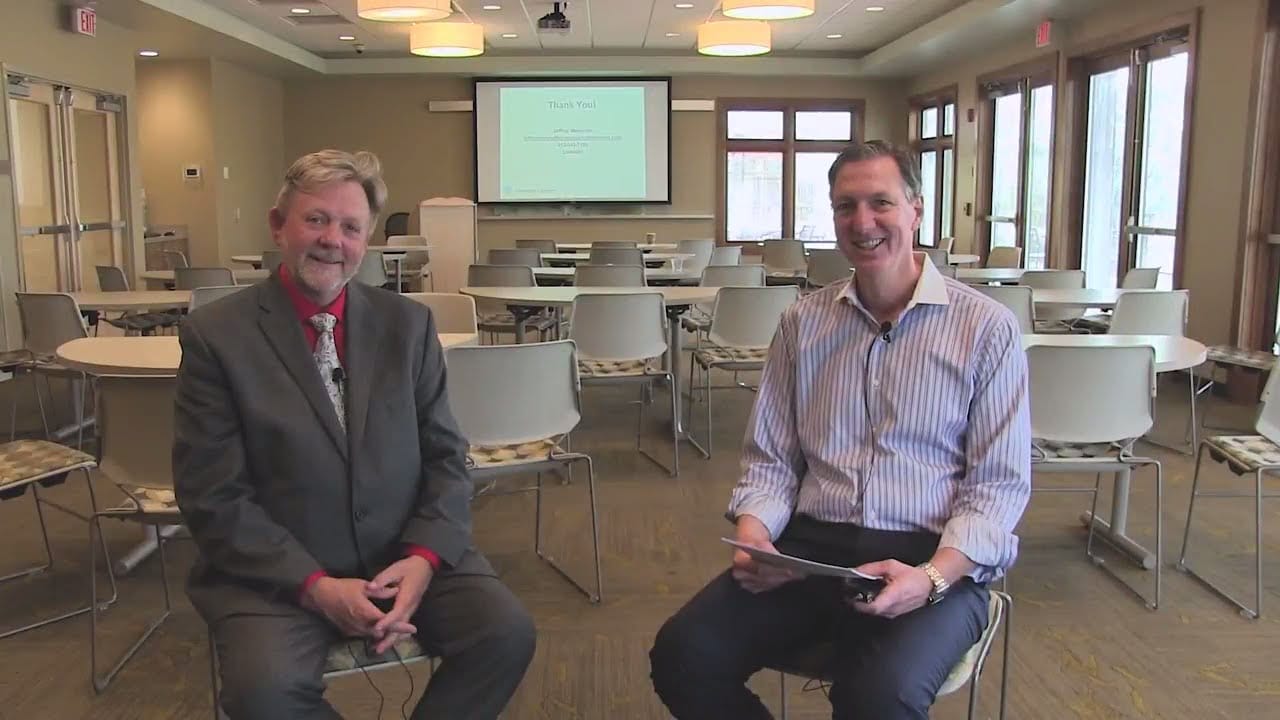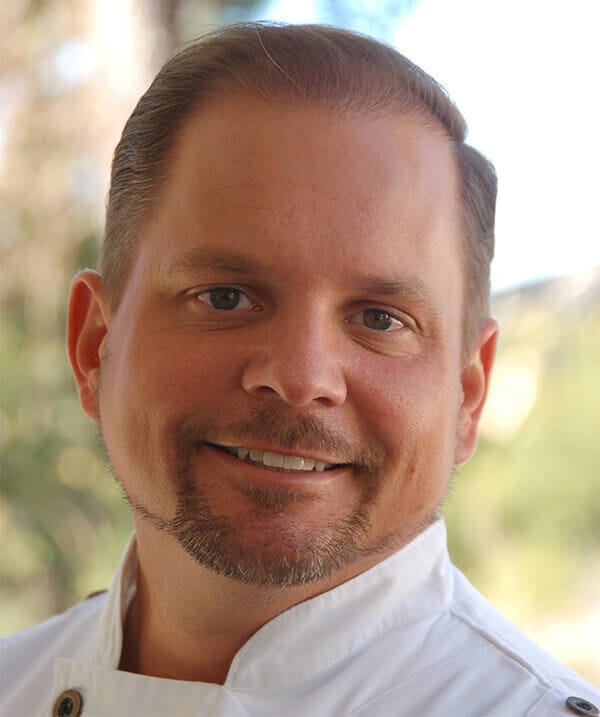

By: Lakeview Health
Chef Marco Grave de Peralta has joined Lakeview Health as director of dietary services. In this podcast, he discusses how patients can learn how to make good food choices for themselves as part of a healthy lifestyle in recovery.
Podcast Transcript
Gina Thorne: Hello, everyone, this is Gina Thorne and I’m joined today with Chef Marco Grave de Peralta for the next installment of the Lakeview podcast series. Chef Marco is new to Lakeview and he’s joined us to talk a little bit about the dietary program at Lakeview Health. Welcome. Marco: Thank you for having me. Gina: We’re interested to learn a little bit about your background. Can you tell us little bit about yourself? Marco: Sure, I actually started cooking at the age of 12. My mom showed me how to make an omelet at the age of 12 and I just fell in love with it. So, helping her around the kitchen while I was growing up was the norm. When I got into high school, I got into a vocational school part time, where you would go to high school two weeks out of the year and then go back to the vocational school and I would alternate my junior and senior year. That actually got my foot in the door at the Culinary Institute of America. I studied there for two years and actually graduated top 10 of my class and then went on to teach there for about a year. I worked at different places after I left there: PGA National Resort and Spa in Palm Beach Gardens; the Saloon Restaurant in South Philadelphia and Café L’Europe in Palm Beach; Wilmington, Delaware, at the Hotel Du Pont. So I really broaden culinary schools by going to a lot of different areas up and down the east coast. When I settled in Newton, New Jersey, I opened up my own little restaurant and after a while I got the opportunity to be a teacher at a vocational school working with high school students, which was just absolutely phenomenal. Love to teach, love to be able to broaden people’s minds and their skills. When I was actually teaching at the school, I actually had summers off and just couldn’t sit still, so I actually started working at a summer camp for kids who had diabetes, which was a great challenge because unfortunately these kids can’t eat regular foods that normal kids who don’t have diabetes disease. So coming up with new different things and new different recipes was a challenge, not only for kids who had diabetes, but also kids who are lactose-intolerant or gluten-intolerant. So the kids actually for the next three years, three summers ate very well. And unfortunately I had to leave Newton, New Jersey, and found a great opportunity in Williamsburg, Virginia, where I worked for a nursing home facility and was able to cook heart-healthy meals for elderly individuals who couldn’t eat regular food. They either had to have a soft diet, mechanical diet, low sodium, low sugar and really got into cooking those types of foods of individuals. I got the opportunity to work at a drug rehabilitation in Williamsburg, Virginia, where I was able to work with patients who were on the road to recovery and learned a lot of different things about different kinds of foods that helped in recovery. Gina: Well, it sounds like you’ve had quite the experiences with lots of special populations, which certainly makes you an excellent fit or the Lakeview team. Could you talk to us a little bit about your new role as the director of food services at Lakeview Health? Marco: Sure, what I’m looking for to do here at Lakeview is something different than any other drug rehab facility on the east coast. We definitely don’t want to put these patients in a bubble and continuously feed them low sodium, no salt, no sugar items. We want to teach them there’s options out there, that they have an option in the facility to make a good choice for themselves. So, when they get out into the real world they don’t have to sit there and worry about “oh my gosh ,I can’t eat at McDonalds because that’s not what they taught me how to eat at Lakeview.” So, what we do is give them a heart-healthy option and then something not so heart-healthy but on a better level . For example, we’ll have chicken parmesan one day and with alfredo sauce but the alfredo sauce won’t be made with heavy cream. It will be made with 2 percent milk and we’ll make sure it taste like alfredo sauce and it’ll have the right consistency. So it’s just real important that patients eat well for the road to recovery but also making sure the food tastes good that there actually enjoying their meal, their stay here. Gina: How do you see some of your current experience that you’ve done, take your teaching, for example, what do you see and that doing and playing apart working with patients here at Lakeview? Marco: Well, what really excites me when I first came here to Lakeview that the executive team really wanted the patients to learn more about how to prepare their own meals. We are actually implementing a teaching kitchen here on campus, where I’ll be able to teach the individuals on different menus and different recipes on how to cook a healthier way, which excites me very much. So instead of making a high-fat pizza we can make a low-fat pizza with whole wheat crust with a reduced calorie tomato sauce with low-calorie cheese so there’s a lot of different things that I have learned in my culinary education, as well as my experience, to bring to that to bring to Lakeview an teach these patients how to cook properly and how to cook healthy. Gina: Well, obviously a lot of our patients come to malnourished from their disease and really struggling to just look at their overall wellness. Offering them an opportunity to eat heart-healthy food options here and then of course teaching them how to do that before they leave is just another asset that Lakeview can give then as far as their tool box is concerned. Speaking of nutrition, you’re not a nutritionist, but we know that you work closely with the nutritionist here at Lakeview. But how do believe from a culinary standpoint nutrition plays a key role in helping people stay sober? What does that look like? Marco: It plays an essential role in recovery. If they take care of themselves and they eat the right things, it just helps them on the road to recovery. Naturally some foods will trigger their cravings for their drug of choice. Eating salty items, chips or bar snacks will trigger “oh my gosh, I have to have an alcoholic beverage with this!” and they want to maybe relapse. So they have to, learning how to eat is just essential as to learning not to be able to pick up a drink. So teaching them how to do that, eating the right way, eating the right foods, will help them in the long run on the road to recovery. Gina: And some would think that as the director of food services, you just cook and obviously you do a whole lot more than that. Can you describe how you work collaboratively with other departments in supporting patient care here at Lakeview? Marco: We work very closely with the clinical director and their team. We make sure that the patients are well taking care of. We also as a dietary team, we’ll interact with the patients on a daily basis. We want to make sure there not eating too much food, because sometimes we don’t want them to swap one addiction for another. We want to make sure that they are eating enough, we have a high tendency of patients coming in who have eating disorders and they’ll tend to eat too much or eating nothing at all. So we actually keep an eye out on the patients while they’re eating, if we see a patient pushing their food on the plate and not eating anything, we’ll contact the clinical team and let them know what we noticed. The clinical team will then take it from there and talk to the patient. We definitely want them to eat right and healthy because it only aids in there recovery. Gina: Well it sounds like it’s sort of that fish bowl mentality where in this field being mindful of patient behavior even down to working with the dietary staff helps with overall success for patients with substance abuse and mental health disorders. My last question, is well obviously, you’re new to Lakeview and getting your feet wet but how do you feel that Lakeview is different from other treatment programs? Marco: Well, the main thing that pops to my mind is the teaching kitchen. I’ve never experienced any other location that actually has that’s going to have a teaching kitchen for the patients to learn how to cook healthy. Lakeview has fantastic ideas on the horizon and I’m just honored to be a part of that and to be part of the team to design a new dining facility, as well as implement the teaching aspect to the patients. Gina: That’s great. Well, we thank you for taking the time with us today we look forward to tasting the new menu that you got coming up this year. For those of you that interested in learning more about Lakeview Health, we encourage you to visit us online at lakeviewhealth.multiplica.dev, again lakeviewhealth.multiplica.dev. If you have any questions you can always call us at [Direct] and thank you again.
